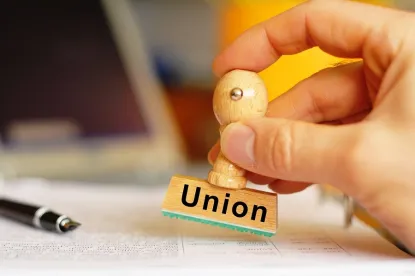The NLRB has ruled that, under the particular circumstances, an employer representative lawfully barred a union representative from asking questions during an investigatory interview while the employer representative was questioning the employee to get his version of events. PAE Applied Technologies, LLC, 367 NLRB No. 105 (Mar. 8, 2019). NLRB Chairman John Ring and Member William Emanuel joined in the decision. Member Lauren McFerran dissented.
Union-represented employees have a right, upon request, to have a representative present during an investigatory interview the employee reasonably believes may result in his discipline (called “Weingarten rights,” after the decision in which the U.S. Supreme Court recognized the right), but the union representative does not have the right to “interfere” with the investigation. NLRB v. J. Weingarten, Inc., 420 U.S. 251, 267 (1975). A Weingarten representative must be allowed to “provide advice and active assistance” and may not be required to “sit silently like a mere observer.” Although a representative may assist the employee or try to clarify the facts or suggest other employees who may have knowledge of them, the employer representative may insist that he is interested, at that time, only in hearing the employee’s own account.
After PAE Applied Technologies received a customer’s complaint about employee John Poulos’ behavior, PAE notified Poulos that he was under investigation and scheduled an interview to get his side of the story. Two union officers attended the meeting, along with four employer representatives. PAE’s investigator, James Rutledge, was in charge of the interview. At the outset, one of the union representatives began asking Rutledge questions, instead of permitting Rutledge to question Poulos. Soon, a number of the union and employer representatives in attendance began talking over one another. Rutledge told everyone to stop talking and that he alone would ask questions.
Rutledge then instructed Poulos to write out his version of the incident under investigation and refused to allow any questions while Poulos completed the statement, although a union representative was allowed to leave the room with a PAE representative to ask a question. Rutledge also allowed Poulos private time with his representatives while Rutledge reviewed the statement. Rutledge then asked Poulos questions, to which Poulos answered in writing and read aloud to everyone in the room. Rutledge continued to prohibit the union representatives from asking questions or otherwise participating, but questions and answers were allowed after he had finished.
The NLRB ruled that PAE’s limitations on the union’s participation in the meeting were lawful and consistent with the legal principles set forth in Weingarten and Board cases applying it. It emphasized that PAE had the right to get Poulos’ version of the incident without disruption and noted that, when he heard “a cacophony of voices,” Rutledge determined that the meeting was out of control and keeping him from being able to get Poulos’ side of the story. The Board found significant that Rutledge’s instruction to everyone to stop talking began “precisely when he sought to elicit Poulos’ written statement about the February 16 incident — i.e., at a time when he was free to insist that no one disrupt Poulos from providing his own account of the matter under investigation.” The Board also found significant that, after Poulos had prepared his written statement, but before questioning him about it, Rutledge permitted Poulos to speak with the union representatives, and that Rutledge allowed the representatives to ask questions later.
This case shows how employers with union-represented employees may conduct and control Weingarten meetings when faced with disruptive behavior by a union representative.






 />i
/>i

